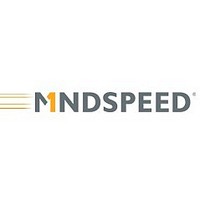cx28224 Mindspeed Technologies, cx28224 Datasheet - Page 16

cx28224
Manufacturer Part Number
cx28224
Description
Cx28224/5/9 Inverse Multiplexing For The Atm Ima Family
Manufacturer
Mindspeed Technologies
Datasheet
1.CX28224.pdf
(271 pages)
- Current page: 16 of 271
- Download datasheet (4Mb)
Introduction to IMA
1.1
1-2
Introduction To Inverse Multiplexing for ATM
Bandwidth, or the lack thereof, has always been the main challenge of
telecommunications. While numerous standards for high speed connections have been
around for years, the cost of these higher speed connections often prohibit users from
deploying them. For example, users who need a data rate higher than the standard T1,
(1.544 Mbps) must pay for an entire DS3 (44 Mbps). Often the extra cost cannot be
justified.
IMA solves this problem by allowing users to purchase bandwidth in smaller
increments and combine these smaller 'pipes' into one high speed connection. An
example is given in
link.
At first glance, the concept of IMA is deceptively simple: spread the ATM cells out
evenly over the available individual lines. However, many serious technical issues
must be dealt with and a wide range of functions must be supported. These include
IMA framing, differential delay accommodation, link/group state machines, IMA
clocking, and maintenance. Several terms must be defined:
IMA Engine
Link
Group
Group State Machine
Mindspeed Technologies
Figure 1-2
where 3 T1 lines are combined into one 4.6 Mbps data
The logic that performs the actual IMA function. This
sits between the ATM layer and the individual links
(see
independent groups.
Refers to an individual physical connection such as a
T1 or DSL line. Each link has an individual UTOPIA
address or serial connection to the IMA engine.
An IMA group is composed of links. A group appears
as a single UTOPIA address to the ATM layer. Thus
an IMA-4 group would have 4 individual links.
The operation of the IMA group is governed by the
Group State Machine (GSM), the Group Traffic State
Machine (GTSM), and the Link Addition and Slow
Recovery (LASR) procedure. These three processes
ensure reliable transmission and reception of ATM
layer cells across all links in the Active state. This
includes the negotiation of group parameters (i.e.,
symmetry and M values), the bringing up of the IMA
group, and the graceful addition/recovery and
deletion of links to and from the group. For the
CX28229, this function is performed in the host
software. The software itself is available from
Mindspeed.
Figure
1-2). An IMA engine can control multiple
™
CX28224/5/9 Data Sheet
28229-DSH-001-D
Related parts for cx28224
Image
Part Number
Description
Manufacturer
Datasheet
Request
R

Part Number:
Description:
Framer SDH ATM/POS/STM-1 SONET/STS-3 3.3V 272-Pin BGA
Manufacturer:
Mindspeed Technologies

Part Number:
Description:
RS8234EBGC ATM XBR SAR
Manufacturer:
Mindspeed Technologies
Datasheet:

Part Number:
Description:
ATM SAR 155Mbps 3.3V ABR/CBR/GFR/UBR/VBR 388-Pin BGA
Manufacturer:
Mindspeed Technologies
Datasheet:

Part Number:
Description:
ATM IMA 8.192Mbps 1.8V/3.3V 484-Pin BGA
Manufacturer:
Mindspeed Technologies
Datasheet:

Part Number:
Description:
ATM SAR 622Mbps 3.3V ABR/CBR/GFR/UBR/VBR 456-Pin BGA
Manufacturer:
Mindspeed Technologies
Datasheet:

Part Number:
Description:
RS8234EBGD ATM XBR SAR, ROHS
Manufacturer:
Mindspeed Technologies

Part Number:
Description:
3-PORT T3/E3/STS-1 LIU WITH/ DJAT IC (ROHS)
Manufacturer:
Mindspeed Technologies

Part Number:
Description:
ATM IMA 800Mbps 1.8V/3.3V 256-Pin BGA
Manufacturer:
Mindspeed Technologies
Datasheet:

Part Number:
Description:
Framer SDH ATM/POS/STM-1 SONET/STS-3 3.3V 272-Pin BGA
Manufacturer:
Mindspeed Technologies

Part Number:
Description:
Manufacturer:
Mindspeed Technologies
Datasheet:

Part Number:
Description:
Manufacturer:
Mindspeed Technologies
Datasheet:

Part Number:
Description:
Manufacturer:
Mindspeed Technologies
Datasheet:

Part Number:
Description:
Manufacturer:
Mindspeed Technologies
Datasheet:

Part Number:
Description:
Manufacturer:
Mindspeed Technologies
Datasheet:

Part Number:
Description:
Manufacturer:
Mindspeed Technologies
Datasheet:










